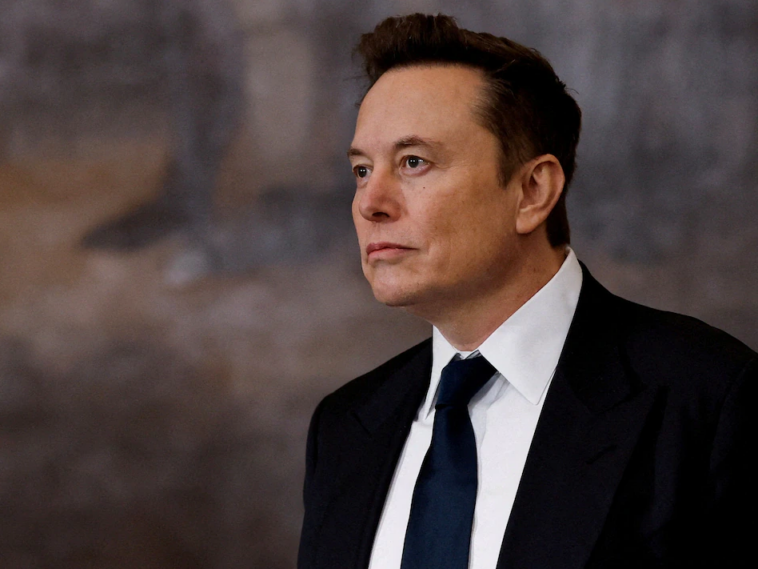The enterprise owned by entrepreneur Elon Musk, referred to as ‘X’, is currently in a dispute with the Indian government, led by Prime Minister Narendra Modi. This conflict is due to the Indian government’s insistence that numerous accounts be blocked following an increase in military friction with Pakistan. X disclosed that it was forced into a corner with an order to suppress around 8,000 accounts in India, under the threat of incarceration for its local workforce if they failed to adhere.
The directives also include impeding access in India to accounts affiliated with global news agencies and renowned users of X. This troubling situation coincides with increased animosity between India and Pakistan, both of whom are asserting their dominance over the contested territory of Kashmir after a terrorist assault on Indian tourists resulted in numerous deaths in the month of April.
In response to these attacks, India initiated drone and missile strikes on communities within the region under Pakistani control, citing these locations as bases for terrorism and militancy. The two countries, both of which possess nuclear arms, have retaliated by exchanging artillery fire. This is leading to apprehensions of a more severe confrontation between the traditional adversaries.
The company ‘X’, previously identified as Twitter, confirmed that it was instructed to obstruct accounts alleged to have contravened Indian legislation. However, the company argues that it received neither proof nor valid rationale for the supposed violations which could warrant such blocking. X confirmed its stand by stating that the directive would only be enforced within the borders of India itself.
It further proclaimed that these suppressive measures imply censorship of current and potential content and is a violation of the fundamental right to freedom of speech. The company expressed this compromise was neither facile nor intuitive, but critical in maintaining the availability of the platform to Indian citizens for access to information.
Simultaneously, X is considering the possibility of legally contesting these directives. On the widely-used media platform, Instagram, a prominent Muslim news account claimed to have been blocked in India. The account, under the username @muslim is followed by 6.7 million users globally which underlines its significance in the global Muslim digital community.
The Indian landscape is well known for its regulatory pressure over social media outlets, and X is not the first Silicon Valley company to face such stringent directives. Previously, the video-sharing platform TikTok faced a nationwide ban from the Indian government, marking a departure for the platform from a key international market since 2020.
In addition, prior to Musk’s acquisition of the company in 2021, local Indian authorities had conducted an unexpected raid on the offices of Twitter amidst the Covid-19 pandemic. These measures indicate a pattern of governmental aggression towards social media platforms and can set a precedence for future clashes.
Furthermore, earlier this year, X proclaimed legal accusations against India. They criticized the Indian government for operating what they called a ‘censorship portal’. This term is used to refer to an automated website controlled by the government, which issues requests to take down certain content.
These developments that have come into play signify a sensitive period for Musk’s various entrepreneurial exploits in India. The billionaire has aspirations to debut his electric automotive company, Tesla, in the Indian market. Additionally, Musk’s satellite operator, Starlink, has been earnestly seeking the necessary permissions to expand its operations in India for several months.
This dispute reflects the challenges international companies might face when asserting themselves in foreign digital landscapes, especially those with stringent regulatory structures. It brings to light the nuances of operating within various political spheres while trying to uphold a universal stance on user freedom and content censoring on the digital platform.
Furthermore, this situation reveals the precarious balance between government regulations and inhabitants’ access to information in the global digital age. It underlines the potential threats to freedom of speech and information access influenced by geopolitical tensions and state censorship.
The recent actions of the Indian government against X shed a spotlight on an essential tension in the digital world. It raises concerns about how a government’s protective actions might inadvertently infringe upon citizens’ rights to access global information.
In the bigger picture, these maneuvers signify a broader trend of national governments grappling with the influence and control of global tech giants. These occurrences push into the debate over individual cyber rights, the role of social media in political discourse, and the significance of ensuring unregulated flow of information.
Finally, the current developments surrounding X reiterate a demand for an open conversation about the struggle between national security and individual freedom in the digital realm. As digital platforms continue to permeate everyday life, it is crucial that governments and corporations strive towards a balance that respects both national sovereignty and individual rights.

